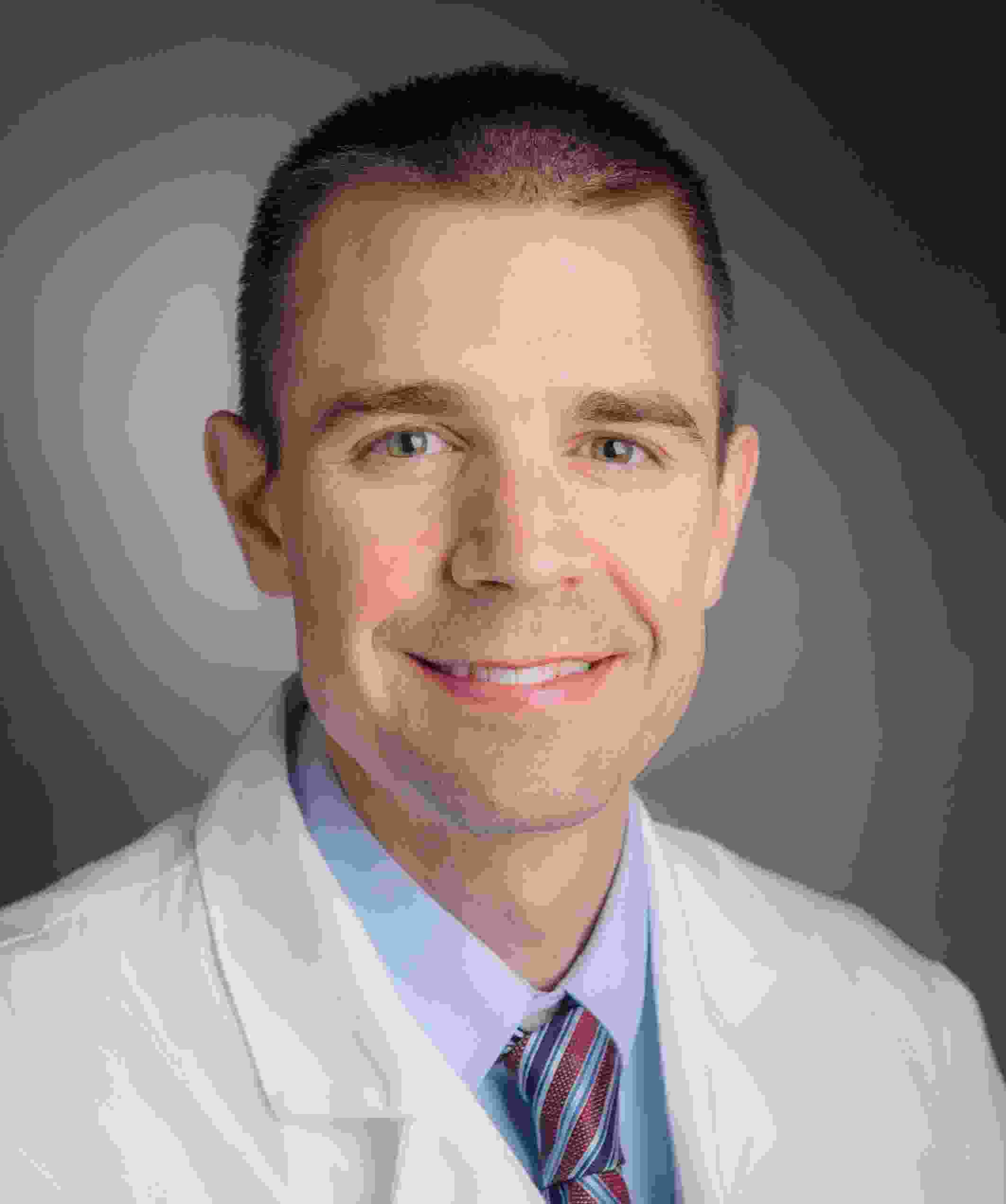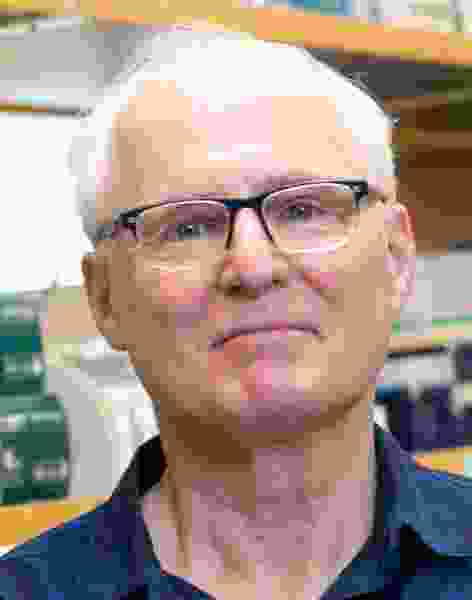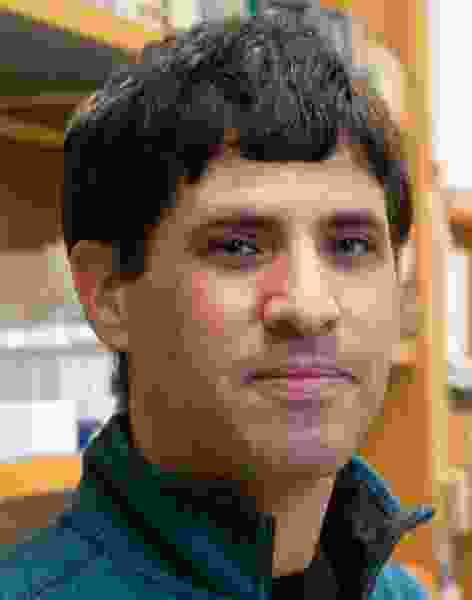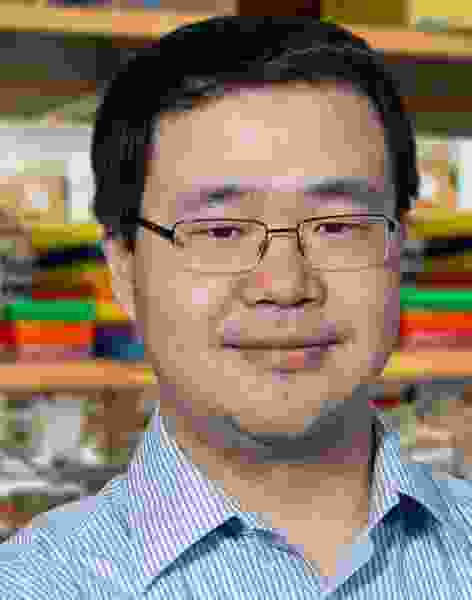Secondary Faculty
-

David Guertin, Ph.D.
Academic Role: Professor (Program in Molecular Medicine)
Nutrient Sensing and Metabolic Signaling
We study the molecular basis of growth and how defects in growth regulatory pathways contribute to cancer, metabolic disorders, and aging. In particular we are trying to understand how cells simultaneously sense nutrient availability, energy levels, and growth factors and use this information to control cell metabolism, cell growth, and cell proliferation. Our approach is multidisciplinary and employs genetic, cell biological, and biochemical strategies using mice, stem cells, and established mammalian cell lines.
-

Matthew Hemming, M.D., Ph.D.
Academic Role: Assistant Professor (Department of Medicine, Division of Hematology-Oncology)
Oncogenic Mechanisms, Biomarkers and Therapies for Sarcoma
Sarcomas are unlike any other cancer in their rarity, diversity and how little we understand them. Work in our lab focuses on using basic and translational research approaches to identify diagnostic tools and therapeutic vulnerabilities in sarcoma. We take a multidisciplinary approach applying broad profiling strategies of clinical samples, screening platforms and mechanistic studies using in vitro models, and preclinical validation of novel targets aimed at clinical translation.
-

Michael Lee, Ph.D.
Academic Role: Associate Professor (Department of Systems Biology)
Systems Pharmacology of Anti-Cancer Therapies
Our lab is mainly interested in understanding mechanisms of anti-cancer drug action, in order to aid in the creation of better therapeutic options of patients with breast cancer. We focus on signaling pathways controlling the growth, survival, and death of cancer cells, in order to identify sources of therapeutic variability and to clarify the “rules” that underlie the efficacy of drugs, both when used as single agents and when used in complex combinations.
-

Shaoguang Li, M.D., Ph.D.
Academic Role: Professor (Department of Medicine, Division of Hematology-Oncology)
Molecular Basis and Stem Cell Biology of Human Philadelphia Chromosome-Positive Leukemias
Research in our lab focuses on understanding the biology of leukemia stem cells (LSCs) and the identification of molecular targets specific for LSCs. We also aim to elucidate the signaling pathways critical for the development of myeloproliferative neoplasms, with a focus on polycythemia vera (PV) induced by JAK2V671F.
-

Elaine Lim, Ph.D.
Academic Role: Assistant Professor (Department of Medicine, Division of Innate Immunity)
Understanding Human Variation in Common Neurological Diseases
Our lab is interested in understanding the effects of human genes and variants in common, complex neurological diseases such as Alzheimer’s disease and neuropsychiatric disorders. We primarily use a combination of stem cell based derivatives such as cerebral organoids, sequencing based technologies such as single-cell RNA sequencing and genomics approaches such as genome engineering and statistical genetics, with the goal of identifying biomarkers and therapeutic targets for these diseases.
-

Dannel McCollum, Ph.D.
Academic Role: Professor (Department of Biochemistry and Molecular Biotechnology)
Regulation of Cell Fate Determination by the Hippo Signaling Pathway
The main interest of my lab is understanding how the Hippo signaling pathway controls cell fate decisions in response to a diverse array of stimuli, in particular mechanical forces. My lab uses cell and molecular biology, genetics, and biochemical approaches to determine how cells sense changes in the mechanical environment and regulate cell fate through control of Hippo signaling.
-

Louis Messina, M.D.
Academic Role: Professor (Department of Surgery, Division of Vascular Surgery)
Hematopoietic Stem Cell-Based Cancer Immunotherapy
Research in my laboratory studies how hypercholesterolemia impairs colorectal cancer immunosurveillance by an oxidant stress-dependent hematopoietic stem cell (HSC)-autonomous mechanism that reduces the number and function of natural killer T (NKT) and gamma delta (γδ) T cells. We are developing HSC-Tet1-dependent NKT and γδ T cell-based cancer immunotherapy, and exploring how physical activity lowers breast cancer incidence by reducing HSC-oxidant stress.
-

Amir Mitchell, Ph.D.
Academic Role: Associate Professor (Department of Systems Biology)
Cellular Networks in Health and Disease
Our lab studies the response of cellular networks to changing environments in health and disease. We combine experimental and theoretical approaches to dissect network functionality and uncover its unique points of failure. We aim to exploit the network structure to therapeutically target subpopulations of diseased cells within a healthy host.
-

Sumeda Nandadasa, Ph.D.
Academic Role: Assistant Professor (Department of Pediatrics, Division of Pediatric Research)
Metalloproteinase Modulation of Ciliary Transition Zone Assembly
The research in my laboratory is focused on understanding the function of extracellular matrix proteases belonging to the ADAMTS family of metalloproteinases in embryonic development and in disease.
-

Peter Newburger, M.D.
Academic Role: Professor (Department of Pediatrics, Division of Pediatric Hematology-Oncology)
Molecular Pathophysiology of Disorders and Neutrophil Number and Function
My research interests lie in the biology and treatment of childhood blood disorders and cancer. We study the molecular pathobiology of congenital neutropenia and chronic granulomatous disease, and are working to develop gene therapy approaches for treatment of hereditary disorders of neutrophils.
-

Jason Pitarresi, Ph.D.
Academic Role: Assistant Professor (Department of Medicine, Division of Hematology-Oncology)
Cellular Plasiticity and Tumor-Host Interactions
Our research focuses on investigating the cellular plasticity mechanisms involved in tumorigenesis, metastasis, and cell fate determinations, as well as exploring the interactions between tumors and their hosts. We are particularly interested in unraveling the role of epithelial-to-mesenchymal transition (EMT) in facilitating the metastatic process and identifying potential therapeutic targets to impede metastasis. Additionally, we explore how tumor cell evolution affects various interactions with the host in different systems, including tumor-immune crosstalk in response to immunotherapy and adipose tissue wasting in cachexia. To comprehensively understand the functional implications of cellular plasticity in cancer, we employ a multidisciplinary approach encompassing mouse models, 3D organoid technologies, multi-omic profiling, and cutting-edge screening methodologies.
-

Miguel Sena-Esteves, Ph.D.
Academic Role: Associate Professor (Department of Genetic and Cellular Medicine)
Gene Therapy for Neurological Diseases
Our laboratory focuses on developing gene therapies for fatal neurological diseases through design of adeno-associated viral (AAV) vectors carrying therapeutic genes and engineering new AAV capsids with enhanced in vivo gene delivery to central nervous system and other target tissues.
-

Chinmay Trivedi, M.D., Ph.D.
Academic Role: Professor (Department of Medicine, Division of Cardiovascular Medicine)
Epigenetic Mechanisms of Cardiac and Vascular Diseases
The research goal of Dr. Trivedi’s laboratory is to identify causal mechanisms of congenital cardiac and vascular diseases affecting human patients. His laboratory has uncovered essential roles of chromatin-modifying enzymes and signaling pathways in the pathogenesis of human diseases such as Emberger syndrome (Lymphedema), Holt-Oram syndrome, Hepatic cavernous hemangiomas, Aortic stenosis, Epithelioid hemangioendothelioma, and Mitochondrial diseases. These discoveries have opened new areas of investigation, identified fundamental developmental processes, and contributed to a roadmap for novel therapies.
-

Meng-Ju Wu, Ph.D.
Academic Role: Assistant Professor (Department of Medicine, Division of Gastroenterology)
Oncometabolites and Immune Evasion in Liver and Other Solid Cancers
Our research program investigates how metabolic and epigenetic alterations reshape tumor-immune interactions in solid cancers, with a particular focus on mutant IDH1 and other common cancer mutations. We study how oncometabolites such as 2-hydroxyglutarate influence chromatin states, disrupt innate immune sensing, and create selective vulnerabilities within the tumor microenvironment. Our work spans genetically engineered mouse models, human and patient-derived primary cancer cell lines, and immune cells derived from peripheral blood mononuclear cells to capture both tumor-intrinsic and immune-intrinsic mechanisms. By integrating functional genomics and single-cell approaches, we aim to uncover mechanisms that can be translated into new therapeutic strategies.
-

Wen Xue, Ph.D.
Academic Role: Professor (RNA Therapeutics Institute)
CRISPR-Based Liver Cancer Modeling and Gene Therapy
Research in my lab is focused on developing and optimizing new CRISPR tools for genome editing to engineer mouse models of cancer and to correct disease genes in vivo. In addition, we are targeting KRAS in lung cancer therapy using small RNA tools and identifying a new tumor suppressor gene network in liver cancer.














